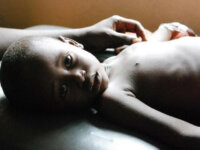By Prince Eze Ugochukwu
As the world unites from 24th to 30th April 2024 to celebrate the power of vaccination and the 50th anniversary of the Expanded Programme on Immunization (EPI), the Imo State healthcare community comes together to mark World Immunization Week with renewed fervour and commitment.

The theme of World Immunization Week: “Humanly possible: saving lives through immunization” encapsulates the enduring mission of immunization: to bring equitable, accessible and high-quality healthcare to all corners of the globe, regardless of geography, race, or economic status. This is a powerful reminder that health is a fundamental human right, and that vaccines play a vital role in safeguarding this right.
The week-long celebrations will be a rallying cry for the public, healthcare workers, and policymakers alike, as they come together to champion the cause of universal immunization. From community health centres to school auditoriums, from bustling urban centres to remote rural outposts, the message will echo loud and clear: vaccines save lives, and they deserve our unwavering support.
The events organized during World Immunization Week will not only serve as an opportunity to educate and dispel myths about vaccines, but also as a chance to recognize and celebrate the tireless efforts of healthcare workers on the frontline of this fight.
Indeed, the success of immunization programs hinges on the collective effort of individuals, communities, and governments. By coming together to support and participate in World Immunization Week, we not only pay homage to the lifesaving work of vaccines, but also contribute to a stronger, healthier world for all.
As the world continues to grapple with emerging health threats and the ongoing challenges of vaccine hesitancy, World Immunization Week serves as a timely reminder that our commitment to vaccination must remain steadfast. Let us unite in the name of global health and make every week World Immunization Week. While the world celebrates the immunization week, Nigeria’s worsening maternal mortality rate has also caught the attention of the world, according to Harriet Marsden, a London-based journalist.

Marsden says that the economic crisis in Nigeria is making hospitals unaffordable, with women increasingly not receiving the care they need. It had actually been postulated that nearly 20% of all global maternal deaths happen in Nigeria. Despite its recent economic woes, Nigeria still boasts of Africa’s highest GDP – but one of the continent’s worst outcomes for pregnant women. This discrepancy in the inflation-battered but most populous African nation is worsening. In 2020, about 82,000 Nigerian women died from pregnancy or childbirth-related complications, including severe haemorrhage, sepsis and unsafe abortions. That number might be “a slight improvement” on the previous year, but it’s a marked increase on previous decades, according to England’s The Guardian.

And one of the highest in the world, in fact. Nearly 20% of all global maternal deaths happen in Nigeria, said the World Health Organization in 2019. A Nigerian woman had a 1 in 22 lifetime risk of dying during pregnancy, childbirth or postpartum/post-abortion. In most developed countries, the risk was 1 in 4,900.
“The huge burden of maternal death in Nigeria is second to only India,” said a study published in the BMC Pregnancy Childbirth journal in 2022. Looking at causes of maternal death at the Lagos University teaching hospital from 2007 to 2019, it revealed “an overall upward trend in maternal mortality of about 4% per annum”. One factor driving the problem, apart from the country’s soaring debt and inflation crisis, is the low number of doctors. A functioning healthcare system should have one doctor for every 600 people, according to WHO guidance. In Nigeria, the ratio is one doctor for every 4,000-5,000 patients. The healthcare budget this year is also only 5%, while the UN suggests at least 14%. The dire state of healthcare prompts many medical professionals to emigrate, exacerbating the problems.
Another issue is access. Most Nigerians live in areas without well-equipped medical centres or have to pay upfront for treatment, said the paper, which makes some women reluctant to seek medical help. In the “densely populated” capital, Lagos, women must contend with “unreliable” public transport and heavy traffic that doesn’t move even for ambulances. “I understand that people are dying from lethal diseases, but pregnancy is not a disease,” Moses Olusanjo, a senior consultant at the maternity ward of Lagos University hospital, told the paper. “The problem of maternal mortality is a reflection of how our society works,” he said. Reducing it is “solely within the power” of the country’s leaders. “It takes political will to say that our women will not die.”
Faced with barriers to treatment, rural Nigerian women are increasingly relying on traditional birth attendants (TBA) and prayer houses during labour, said The Guardian of Nigeria – rather than the skilled professionals the WHO recommends. Although TBAs have long provided delivery care in Nigerian communities where strong cultural and religious beliefs persist, the growing economic hardship means many women cannot afford general or federal hospitals. Others are scared of the possibility of a birth ending in a caesarean section, said the paper. They are then convinced that a TBA is the best option to avoid complications – but if problems do arise, TBAs are generally not equipped to handle them.
At an antenatal check-up, a TBA “will not check your blood pressure, blood sugar; they won’t even know if you have hypertension or diabetes in pregnancy, or if something is wrong with the baby”, one doctor, Odunola Olabintan, told the paper. “They don’t have that equipment. What we can do to encourage women to embrace hospitals is to make the services cheaper,” she said. “Any serious government that wants to curtail maternal mortality and care for women would do so. Most maternal deaths in Nigeria are preventable, according to the 2022 study. The country must “initiate, sustain and monitor useful interventions aimed at prevention”
Edited by the Editor




